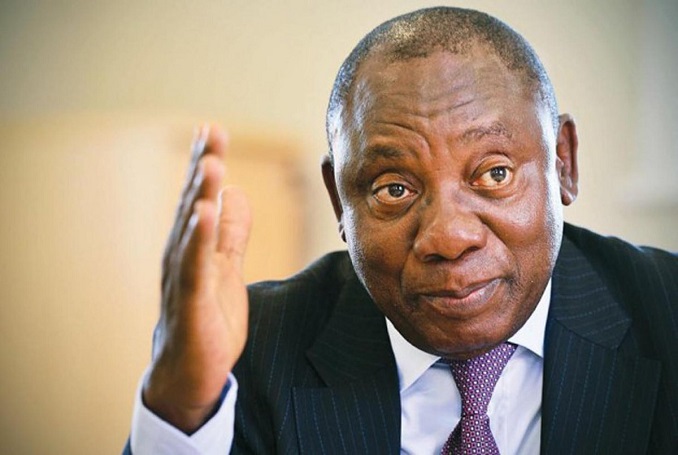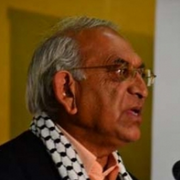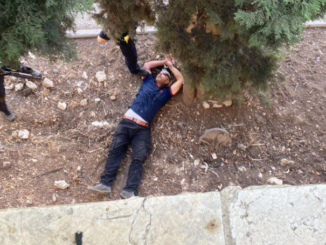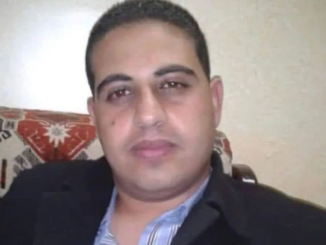
By Iqbal Jassat
The Department of International Relations and Cooperation (DIRCO) put together what appears to be a clumsy attempt to justify South Africa’s diplomatic ties to Israel.
This feeble effort in response to justifiable expressions of outrage and dismay by many on social media platforms who protested the acceptance of the letter of “credence” by Israel’s new envoy, has been a dismal failure.
Ironically, instead of silencing critics, the statement has potentially sparked a fresh debate on what is perceived by South Africa’s Palestinian solidarity movements to be the government’s inconsistent foreign policy on Israel.
“Talking left but walking right” is a sentiment abhorrent to most liberal democracies, yet perfectly applicable to Western Europe, America as indeed it would be for the ANC-led government as regards policy positions on Israel.
Caught up in this maelstrom at a time striking Clover workers have mobilized various unions and progressive forces including Palestinian solidarity movements to demand the dairy industry be protected and Clover in particular be delinked from Israeli owners, has placed the Ramaphosa administration in a quandary.
A part of the statement by Dirco confirming that post-apartheid South Africa and Israel have maintained “formal diplomatic ties”, may be a rude awakening for many who believed that the country’s claim to “support Palestine” necessitated ending relations with the settler-colonial regime.
The controversial decision to honor Israel’s envoy comes on the heels of one of the most crucial reports by Amnesty International (AI) which makes compelling and indisputable findings declaring Israel as an Apartheid regime.
Though the AI report makes damning findings describing Israel’s Apartheid against Palestinians as a “cruel system of domination and crime against humanity”, it doesn’t surprise us including many scholars, journalists, and human rights activists, who have for decades been speaking out against the racist regime.
For instance, Michael Lynk, the UN Special Rapporteur for the situation of human rights in the Occupied Palestinian Territories (OPT) has repeatedly pleaded with the international community to hold Israel to account for its 54-year occupation of Palestine.
South Africa is aware of the UN Security Council resolution calling for an end to all settlement activities, which has yet to be implemented five years later. Surely such a serious violation in addition to numerous more resolutions that constitute defiance of the UN Charter, does not warrant red-carpet treatment by the Presidency?
Lynk correctly warned: “Without decisive international intervention to impose accountability upon an unaccountable occupation, there is no hope that the Palestinian right to self-determination and an end to the conflict will be realized anytime in the foreseeable future.”
Resolution 2334, adopted by the Security Council on 23 December 2016, stated that Israeli settlements constitute “a flagrant violation under international law” and said that all settlement activities in the occupied Palestinian territory, including East Jerusalem, must “immediately and completely cease.”
And to illustrate how hollow and futile, if not naive, Dirco’s stance on the myth of two states is, the resolution pointed to the expansion of settlements threatening its viability. Between then and now, illegal settlements have reduced Palestinian territory to a tiny fragmented fraction of land, making it utterly inconceivable to have governments such as South Africa still punting this myth.
The Special Rapporteur noted that “in the 20 reports delivered to the Security Council since the Resolution was adopted, the Secretary-General or his representative have stated on each occasion that Israel has not complied with any of the directions of the Security Council.”
“Is it not clear by now that the Israeli political leadership has no interest, and no incentive, to end the occupation?”, asked Lynk.
“One statistic above all illustrates the remarkable unwillingness of the international community to enforce its own directions respecting the Israeli occupation,” the UN expert said. “In 2016, when Resolution 2334 was adopted, there were an estimated 400,000 Israeli settlers in the West Bank and 218,000 in East Jerusalem. Five years later, there are 475,000 settlers in the West Bank and 230,000 in East Jerusalem, an increase of 12 percent. This dynamic reality on the ground is racing far ahead of the international community’s tepid criticism of Israel’s unlawful conduct.”
Now that the AI report has vindicated Lynk and a host of organizations including Human Rights Watch, B’Tselem and more importantly all Palestinian human rights NGOs, one hopes the South African government will urgently review its misguided policy and bring it in line with the findings of AI.
It has to mark the beginning of a new dawn for the Ramaphosa administration by immediately implementing a raft of recommendations by AI for governments which include:
* Do not support the system of apartheid or render aid or assistance to maintaining such a regime, and cooperate to bring an end to this unlawful situation.
* Immediately suspend the direct and indirect supply, sale or transfer, including transit and trans-shipment to Israel of all weapons, munitions and other security equipment, including the provision of training and other military and security assistance.
* Institute and enforce a ban on products from Israeli settlements in your markets and regulate companies domiciled in your jurisdiction in a manner to prohibit companies’ operation in settlements or trade in settlement goods.
It also calls for the exercise of universal jurisdiction in investigating persons suspected of committing crimes against humanity; ensure that legal frameworks enable prosecution of perpetrators of the crime of apartheid, and to publicly recognize that international crimes, including the crime of apartheid, are being committed in Israel and the OPT.
After all, Apartheid is a violation of public international law, a grave violation of internationally protected human rights and a crime against humanity under international criminal law, as AI emphasizes.

– Iqbal Jassat is an Executive Member of the South Africa-based Media Review Network. He contributed this article to The Palestine Chronicle. Visit: www.mediareviewnet.com








